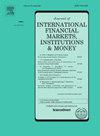在不确定时期,ESG投资是否能改善投资组合的多元化和风险管理
IF 6.1
2区 经济学
Q1 BUSINESS, FINANCE
Journal of International Financial Markets Institutions & Money
Pub Date : 2025-08-05
DOI:10.1016/j.intfin.2025.102199
引用次数: 0
摘要
本研究旨在评估ESG资产的统计属性是否有助于投资组合弹性、缓解市场波动和增强多元化。具体来说,我们关注回报分布尾部的变化,强调风险暴露的潜在不对称性。我们在2017年1月至2023年5月期间使用不同地区的每周ESG和传统指数。在经验上,我们通过引入地缘政治风险作为外生因素,增加了平均条件风险值(CVaR)优化技术。首先,ESG指数增强了投资组合的多元化,同时减少了对极端市场波动和地缘政治不确定性的敞口。其次,纳入ESG资产有利于可持续投资和有效的财务风险管理,为追求财务和可持续性目标的投资者提供了一个可行的选择。此外,我们的结果在增量CVaR方法下仍然稳健,并与ESG和传统指数对地缘政治风险的时变敏感性相一致,如beta动力学分析所示。我们的研究结果为投资者多样化投资组合提供了一些见解。本文章由计算机程序翻译,如有差异,请以英文原文为准。
Do ESG investments improve portfolio diversification and risk management during times of uncertainty
This study aims to assess whether the statistical properties of ESG assets contribute to portfolio resilience, mitigate market volatility, and enhance diversification. Specifically, we focus on variations in the tails of the return distribution, highlighting potential asymmetries in risk exposure. We use weekly ESG and conventional indices across various regions from January 2017 to May 2023. Empirically, we augment the mean-conditional value at risk (CVaR) optimisation technique, by introducing geopolitical risk as an exogenous factor. First, ESG indices enhance portfolio diversification while reducing exposure to extreme market movements and geopolitical uncertainty. Second, incorporating ESG assets is advantageous for both sustainable investment and effective financial risk management, presenting a viable option for investors pursuing both financial and sustainability objectives. Moreover, our results remain robust under incremental CVaR approach and align with the time-varying sensitivity of ESG and conventional indices to geopolitical risk, as shown by beta dynamics analysis. Our findings offer several insights for investors diversifying their portfolio.
求助全文
通过发布文献求助,成功后即可免费获取论文全文。
去求助
来源期刊
CiteScore
6.60
自引率
10.00%
发文量
142
期刊介绍:
International trade, financing and investments, and the related cash and credit transactions, have grown at an extremely rapid pace in recent years. The international monetary system has continued to evolve to accommodate the need for foreign-currency denominated transactions and in the process has provided opportunities for its ongoing observation and study. The purpose of the Journal of International Financial Markets, Institutions & Money is to publish rigorous, original articles dealing with the international aspects of financial markets, institutions and money. Theoretical/conceptual and empirical papers providing meaningful insights into the subject areas will be considered. The following topic areas, although not exhaustive, are representative of the coverage in this Journal. • International financial markets • International securities markets • Foreign exchange markets • Eurocurrency markets • International syndications • Term structures of Eurocurrency rates • Determination of exchange rates • Information, speculation and parity • Forward rates and swaps • International payment mechanisms • International commercial banking; • International investment banking • Central bank intervention • International monetary systems • Balance of payments.

 求助内容:
求助内容: 应助结果提醒方式:
应助结果提醒方式:


